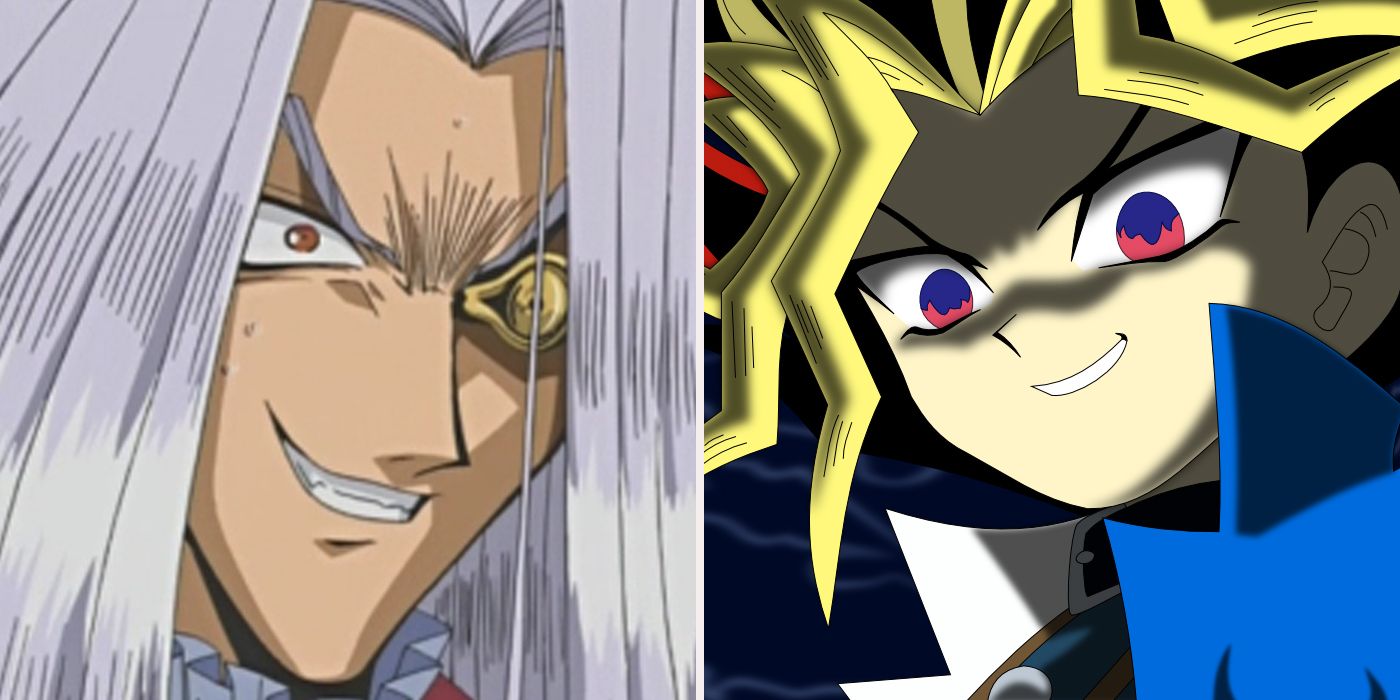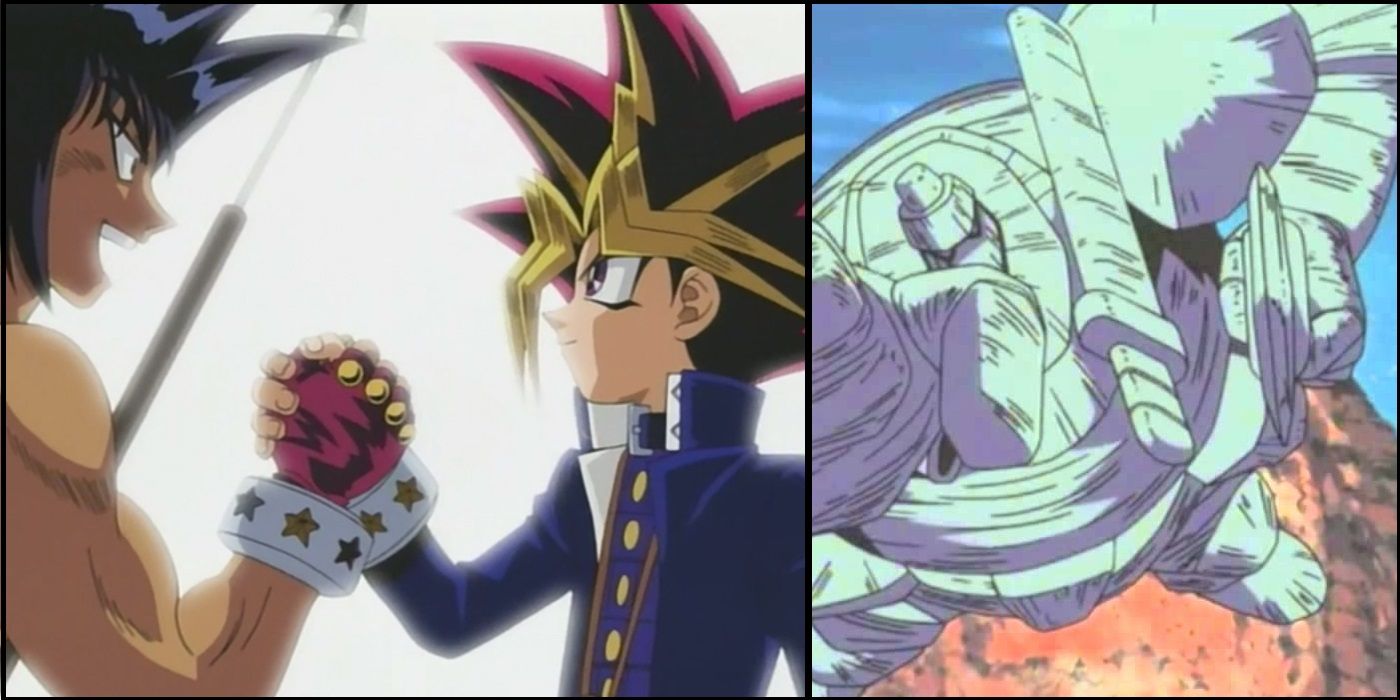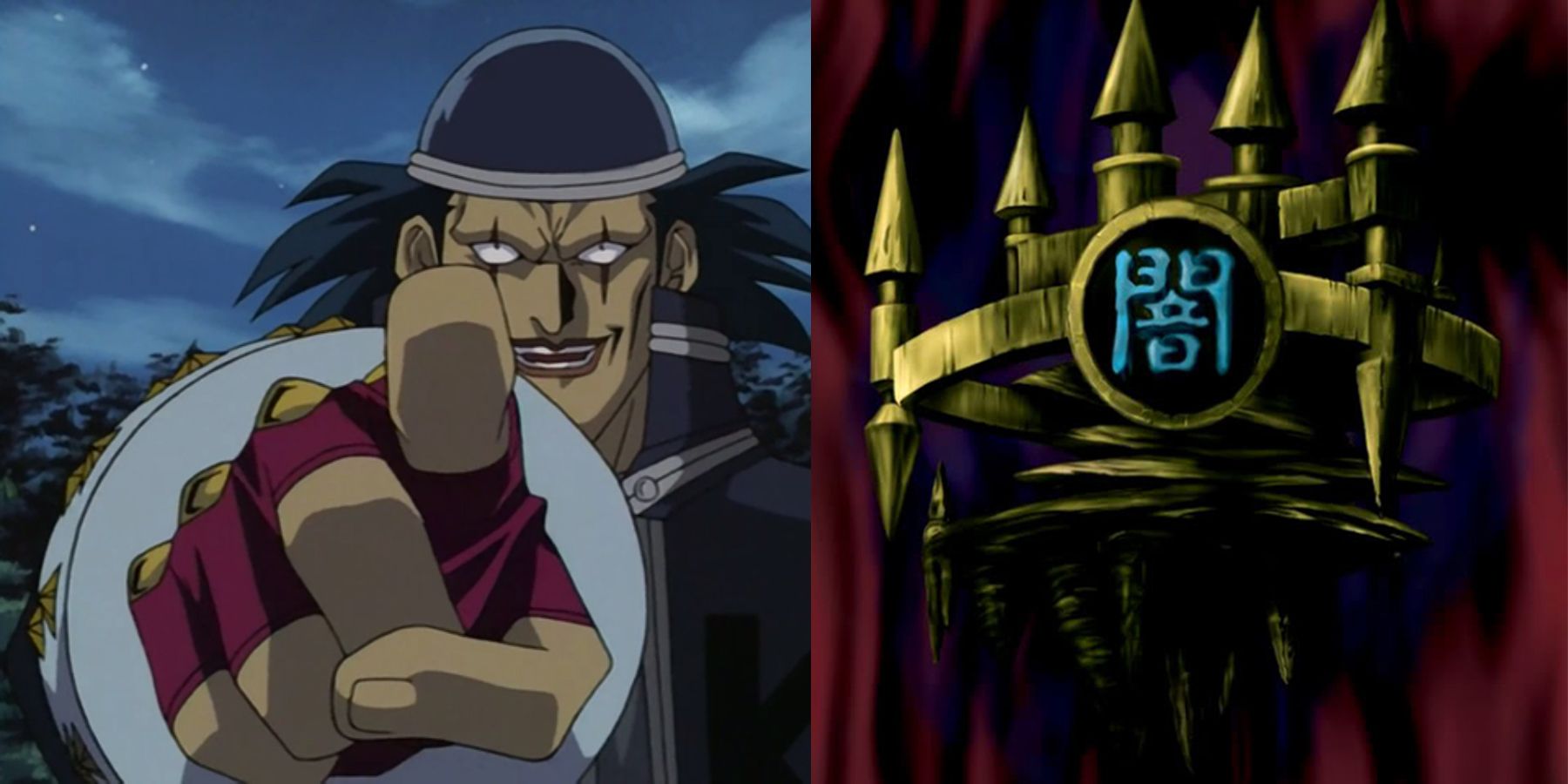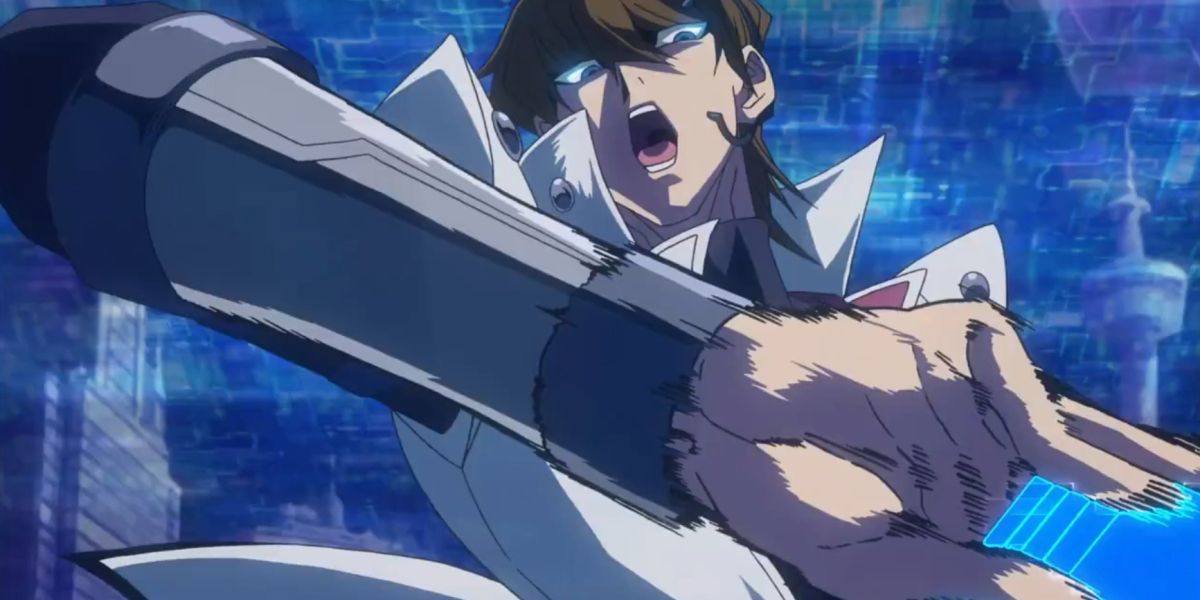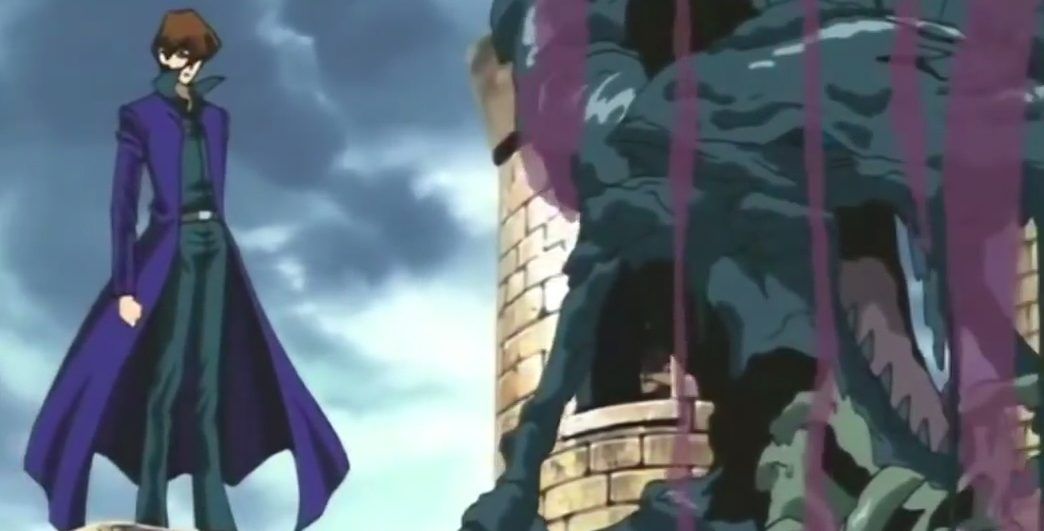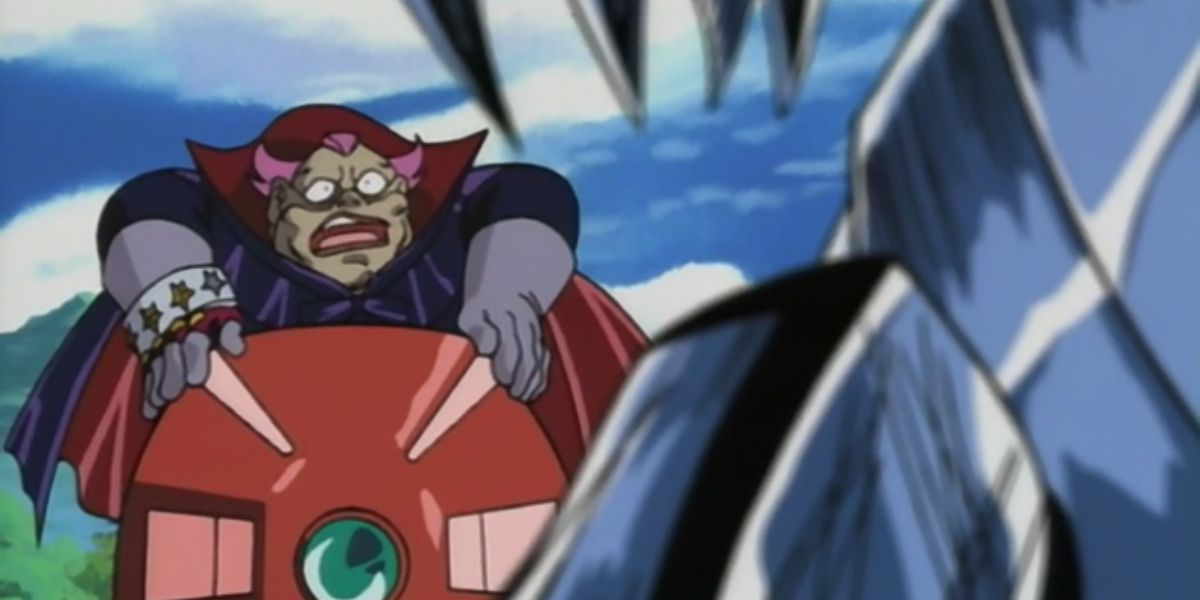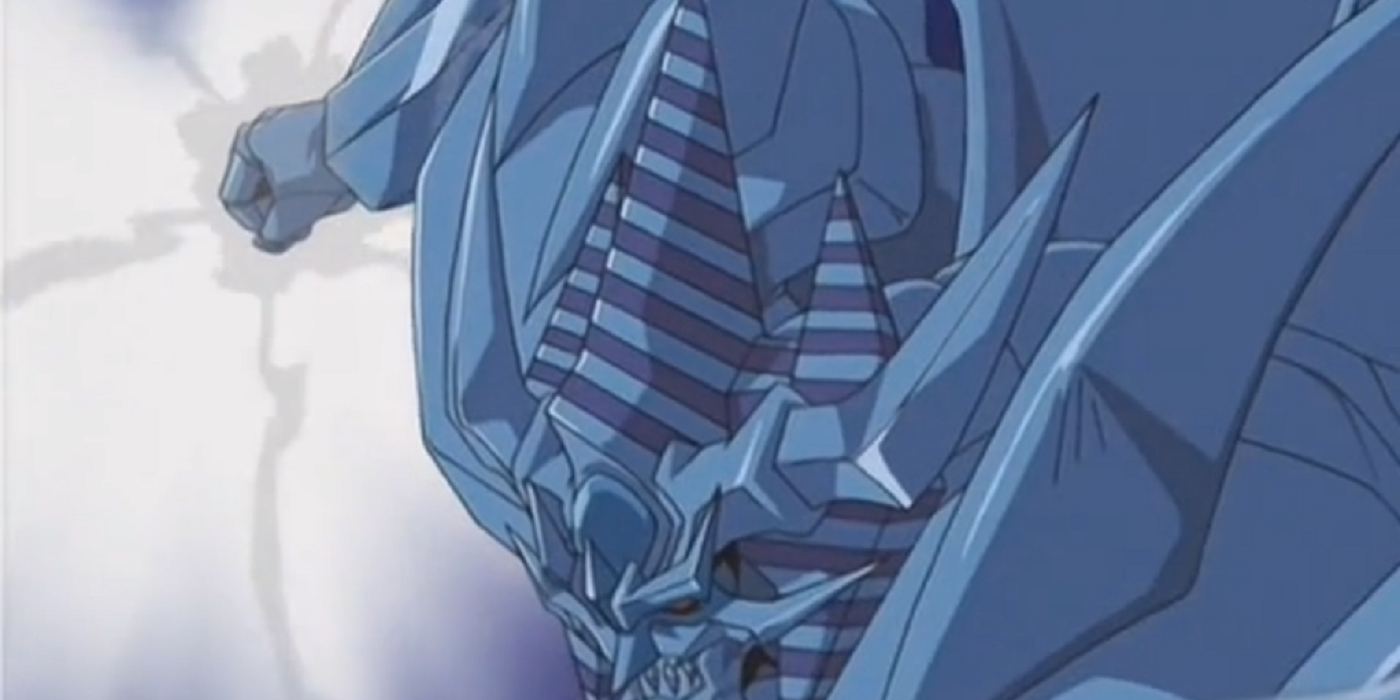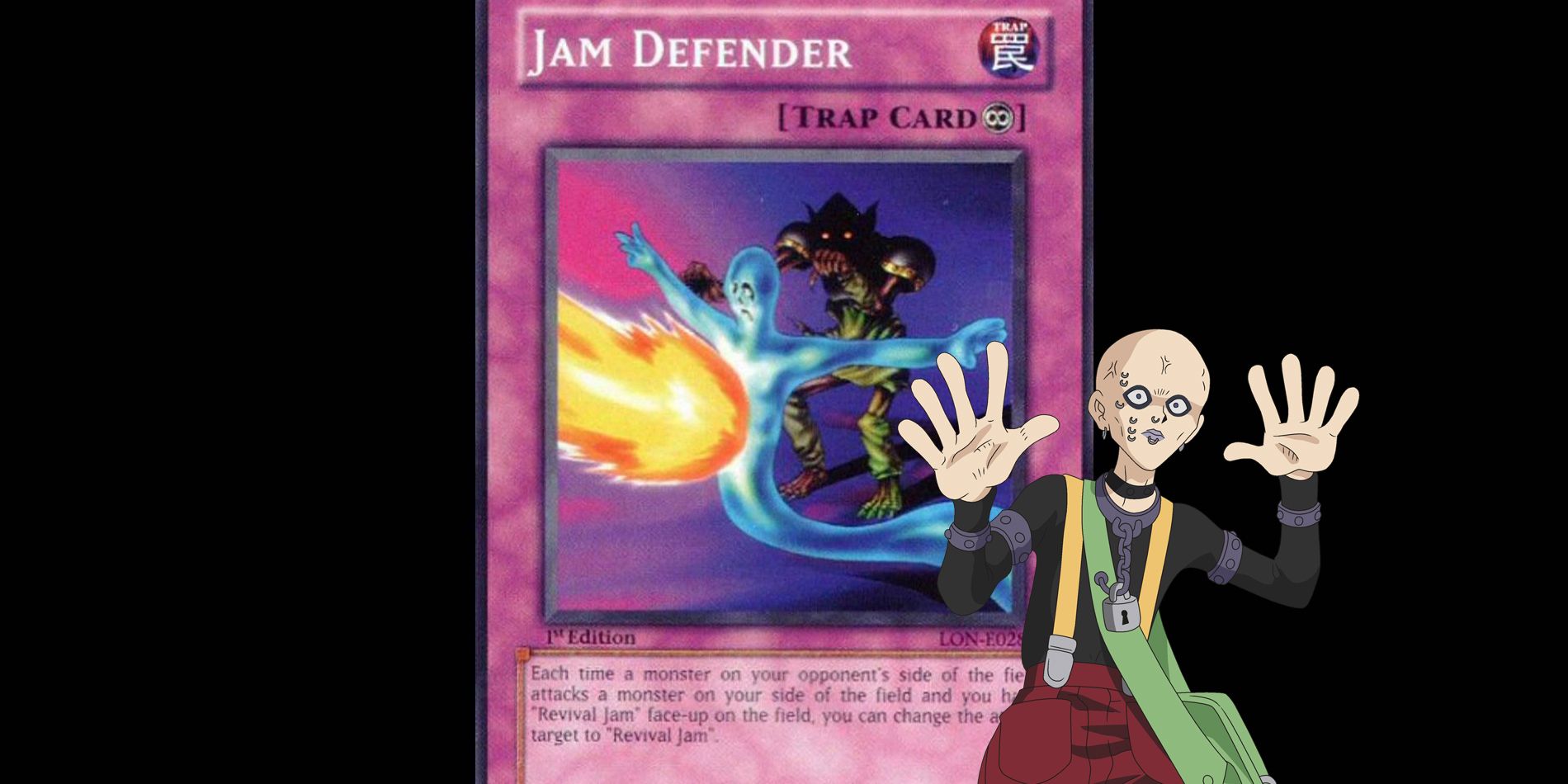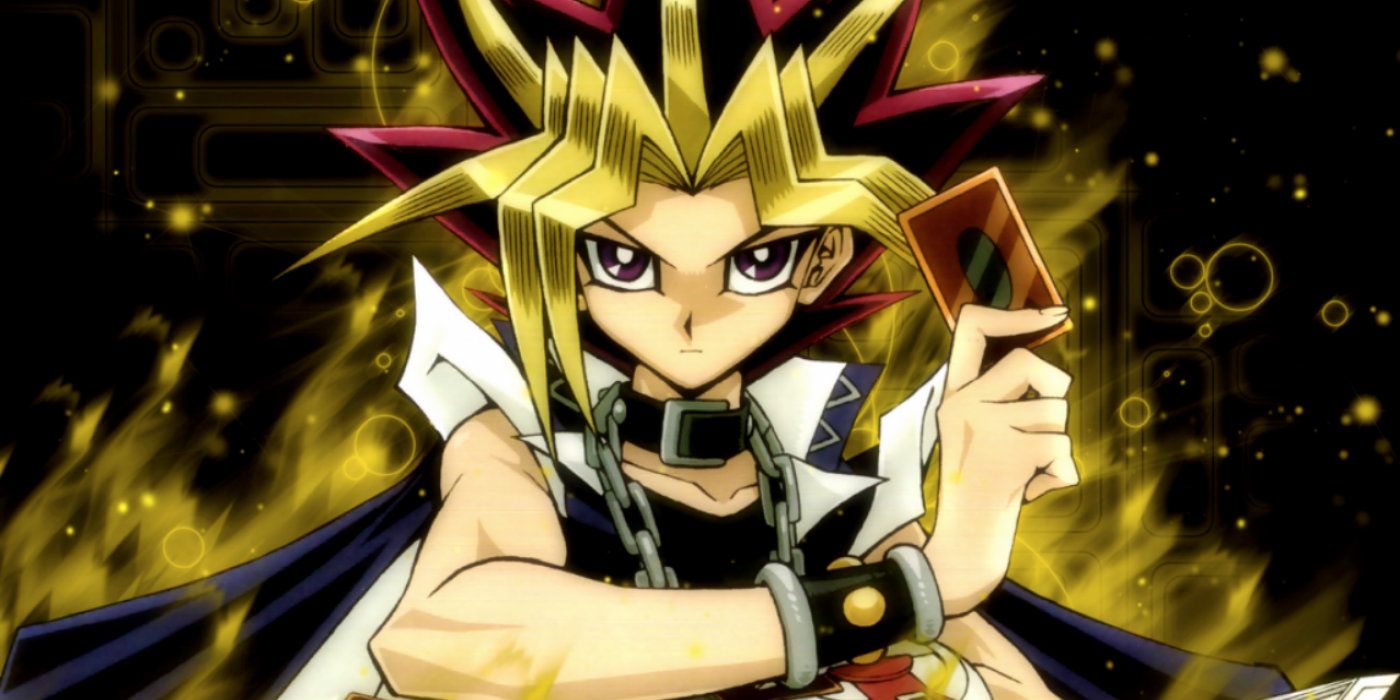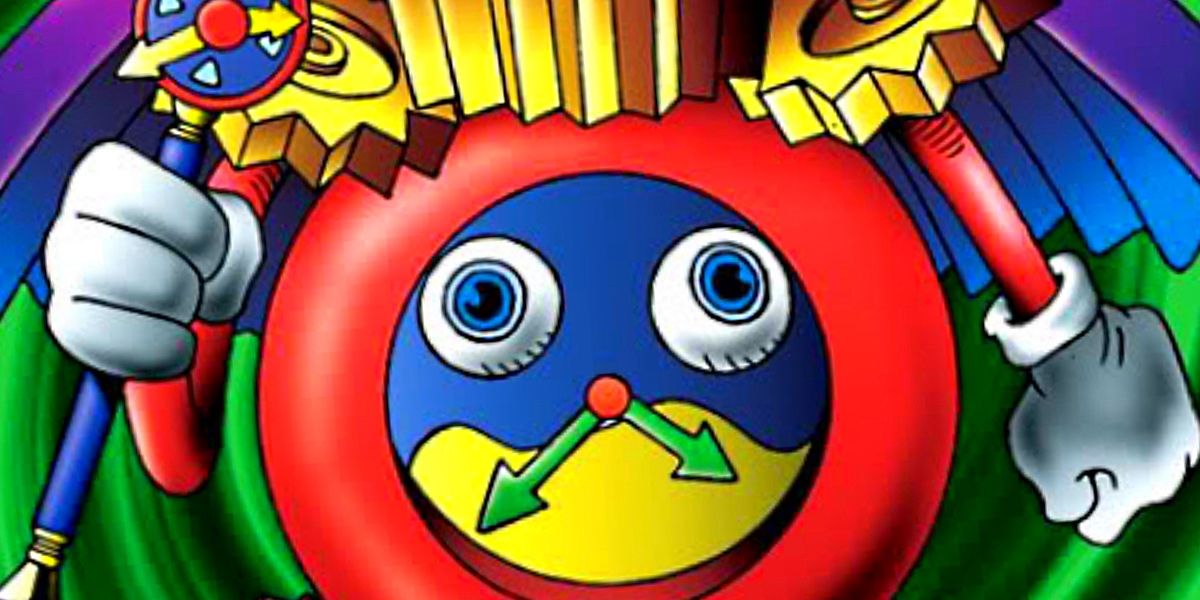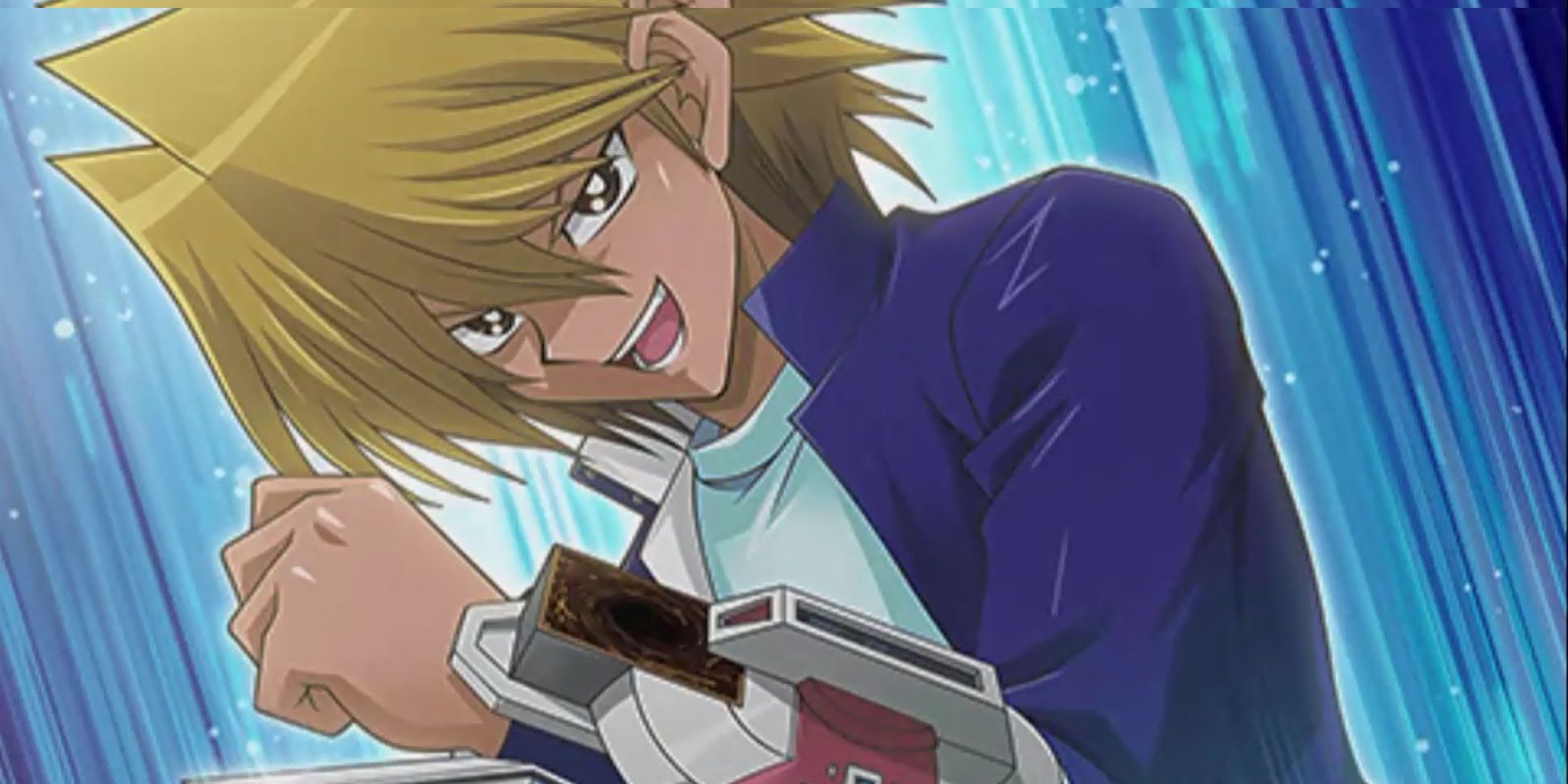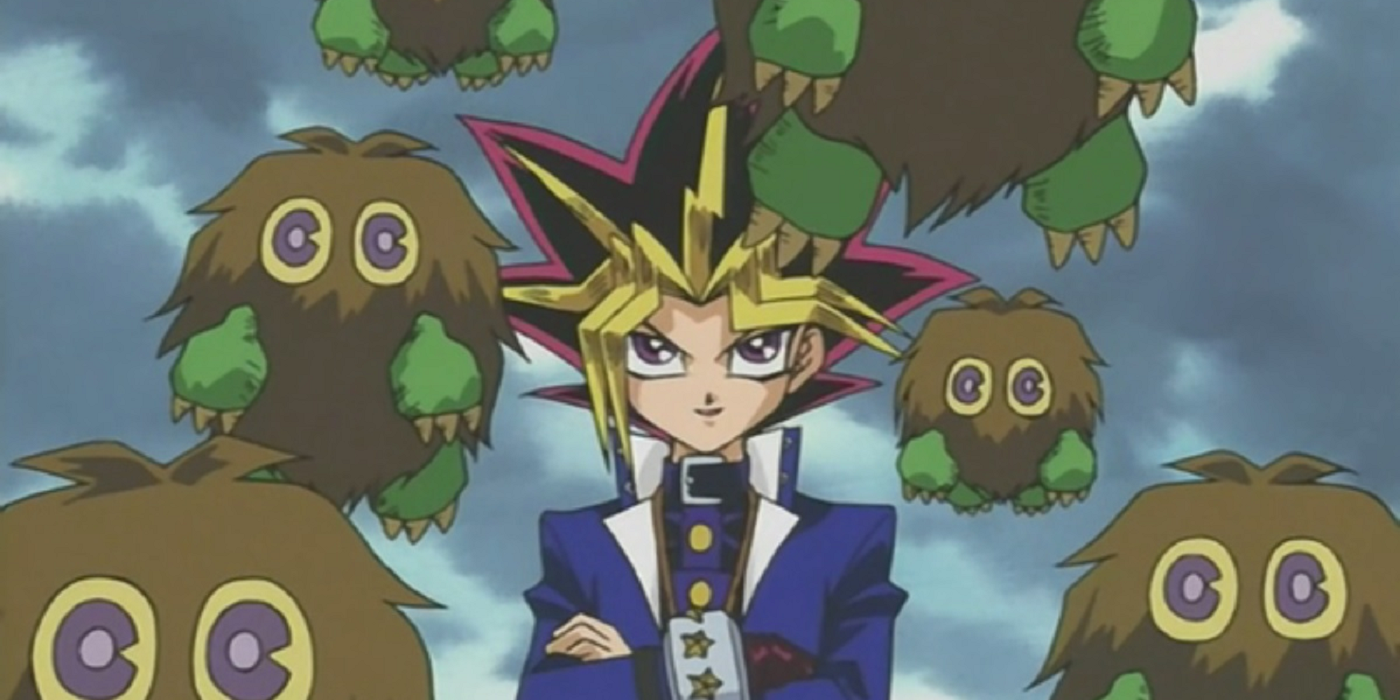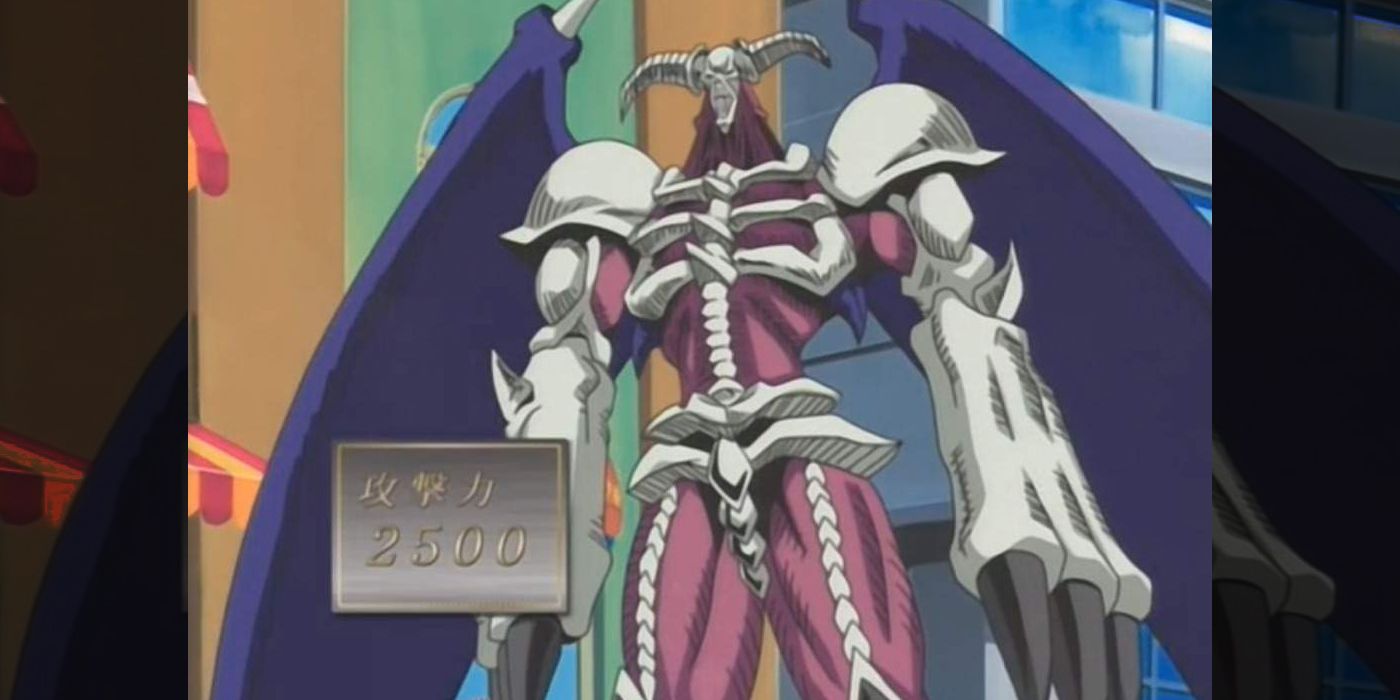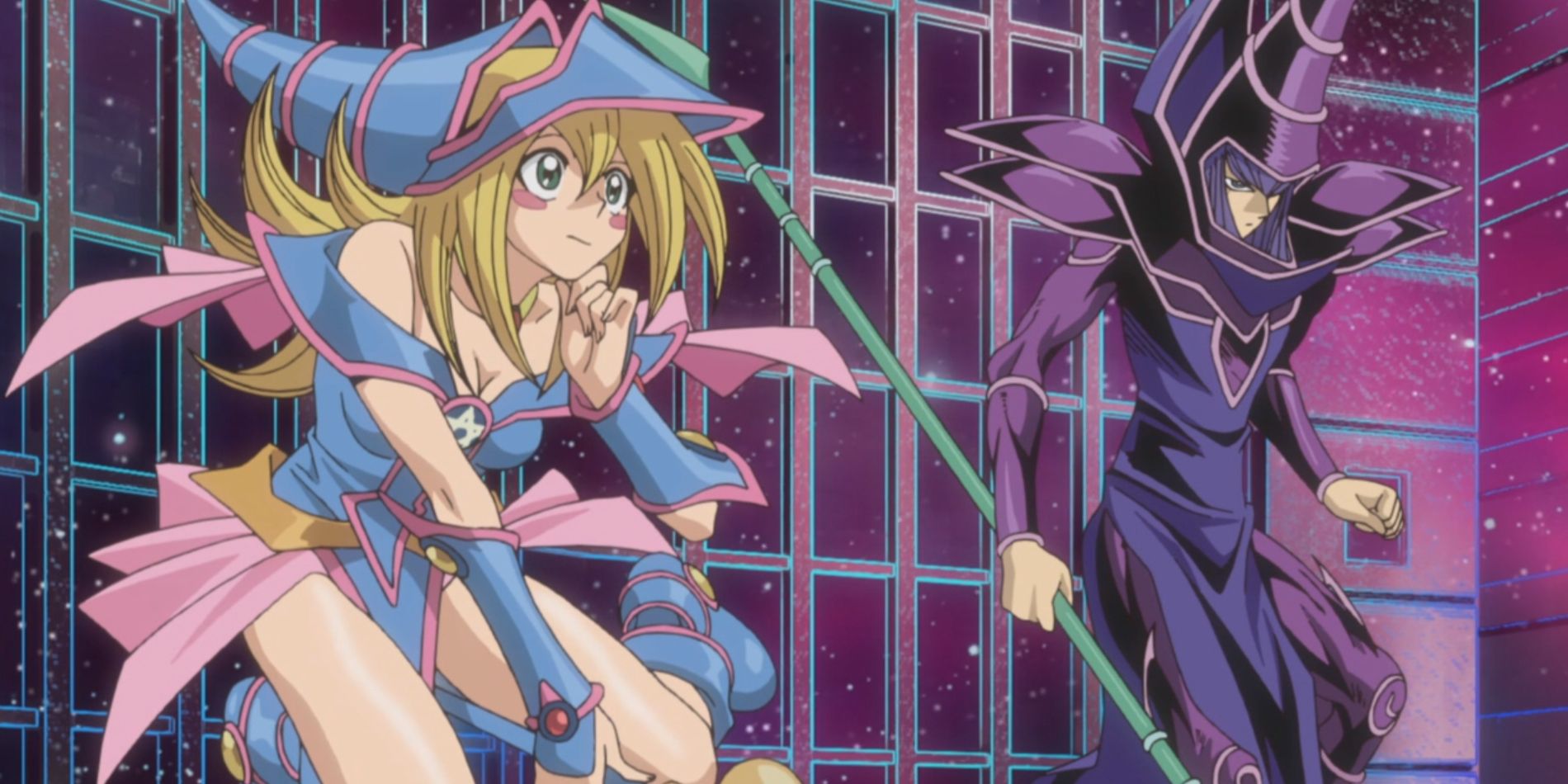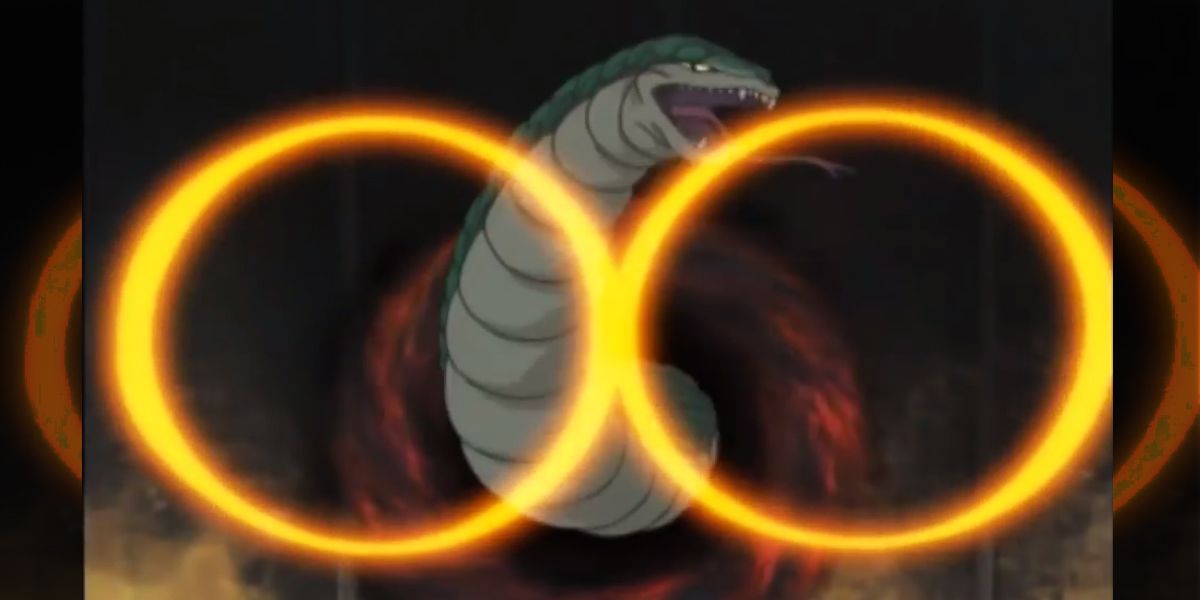The Duel Monsters card game from Yu-Gi-Oh! needed to have set rules, otherwise, things would have become boring really quickly. If Yugi ended every duel by shooting his opponent in the head or using his magic to crush their minds, then there would be no point in even playing the card game in the first place. Without rules, there is only anarchy, which is why Duel Monsters had guidelines that the players were supposed to follow.
There were a few times when the duelists in Yu-Gi-Oh! decided not to folow the rules and just made stuff up as they went along, however. No one ever got called out for this, which is especially frustrating for the viewer, as it makes it harder to take an already ridiculous show seriously.
We are here today to act like the referees that the world of Yu-Gi-Oh! so desperately needed.
From the time Yugi pulled a Master Roshi and started blowing up moons to the winning move that could have been refuted if Dartz had just consulted a dictionary, here are the 15 Times Yu-Gi-Oh! Characters Cheated To Win Duels.
15. Attack The Moon!
Masashi Kishimoto is the creator of the original Yu-Gi-Oh! manga. He originally intended for Yu-Gi-Oh! to focus on numerous different games, with the original version of Duel Monsters (called Magic & Wizards) only appearing in a single arc.
The popularity of Magic & Wizards led to Yu-Gi-Oh! focusing solely on cards. As such, the early story arcs were being written without consideration for how the rules would work in the actual card game.
One of the biggest examples of a character just making up an attack happened during Yugi and Mako's duel early on in the anime. Mako had managed to flood most of the duel arena and filled the water with his monsters. Yugi had previously played the Full Moon card and he was somehow able to make his Giant Soldier of Stone attack the moon itself, causing the tides to recede and making it possible to attack Mako's monsters.
This move makes so little sense that a card called Attack the Moon was released for the real card game in an effort to explain it. Even if Yugi had played Attack the Moon it wouldn't have worked, as it only allows you to hit your opponent's spell/trap cards.
14. Attack The Floatation Ring!
Mako wasn't the only character who got screwed over by a dodgy ruling during the Duelist Kingdom arc. Attacking the moon makes about as much sense as the move Yugi uses to defeat PaniK.
PaniK was one of Pegasus' Eliminators. These were a group of highly trained duelists who were unleashed upon the contestants of the Duelist Kingdom tournament. PaniK's gimmick was that he used a card called Castle of Dark Illusions to shroud the duel arena in darkness so that the other player couldn't see what monsters he was playing and couldn't retaliate against them.
Yugi defeats PaniK by using his Catapult Turtle's ability to target the Castle of Dark Illusions' floatation ring, causing it to fall on PaniK's other monsters and destroying them. You cannot normally target specific parts of a monster in battle. Yugi should only have been able to destroy the Castle of Dark Illusions while leaving the other monsters unharmed.
13. Kaiba Can't Count
Seto Kaiba's main goal in life was to defeat Yugi (and later, the Pharoah). He only managed to defeat Yugi once and only did this by threatening to kill himself if he lost. Kaiba battles Yugi on several occasions after that and comes out the loser each time. The movie Dark Side of Dimensions was about how Kaiba couldn't let go of the fact that he hadn't defeated the Pharoah, which leads him to create a device that allows him to travel to the afterlife.
Kaiba technically should have defeated Yugi during their duel in Pyramid of Light. At one point during their duel, Kaiba summons the Blue-Eyes Shining Dragon, which gains 300 ATK for every Dragon-type monster in the graveyard. It attacks Yugi and drops him to 200 life points.
When Kaiba summoned the Blue-Eyes Shining Dragon, he only added an ATK boost for five of the six dragons in his graveyard. If he had correctly counted all six, then he would have won the duel in that turn.
12. The Mammoth Fusion
Kaiba only won a single duel against Yugi because he threatened to kill himself if he lost. He really should have won that duel through disqualification, as Yugi pulls off one of the most nonsensical moves in Yu-Gi-Oh! history.
In the 24th episode of the Yu-Gi-Oh! anime, Kaiba successfully summons the Blue-Eyes Ultimate Dragon to the field. Yugi manages to weaken it by combining his Living Arrow card with Polymerization and Mammoth Graveyard. This fuses the undead Mammoth Graveyard with the Blue-Eyes Ultimate Dragon, causing it to lose ATK points.
According to the text in the Japanese version of the episode, the Living Arrow card transfers the effect of a spell onto an opponent's monster. That could be interpreted in many different ways and makes no sense in practice.
Polymerization also doesn't work that way. In the actual card game, the Living Arrow is called Spell Shattering Arrow and it destroys the opponent's face-up spell cards while also taking away life points.
11. Ghost In The Kaiba
The first member of Pegasus' Eliminators that Yugi battles is called the Ghost of Kaiba. In the Japanese version of the show, he is simply a master impressionist who uses Kaiba's stolen deck in battle. The American dub changes him into Kaiba's evil sidekick who Yugi had banished to the Shadow Realm in the first episode and had been given a physical body by Pegasus.
You have to feel sorry for Ghost Kaiba, as he was on the receiving end of the Duel Monsters version of the Montréal Screwjob. He only lost the duel due to outside cheating, yet Pegasus never stepped in and helped him out.
While Yugi was battling Ghost Kaiba, the real Kaiba managed to hack into the duel arena and manually lowered the ATK of his Blue-Eyes White Dragon cards. This is a blatant case of outside interference, yet Yugi just rolls with it and wins the game. He even gives Ghost Kaiba a mind crush for good measure.
10. Obelisk's Trap Breaking Punch
The Egyptian God Cards existed in a category of their own. They each required three tributes in order to be summoned, but they were vastly stronger than pretty much every other monster in the game.
Seto Kaiba was given the Obelisk the Tormentor card in order to keep it safe. He adds it to his deck and decides to give it a whirl during one of the first duels of Battle City. Kaiba faces off against a regular duelist and summons Obelisk to the field. He orders Obelisk to attack, which causes his opponent to activate his Mirror Force trap card. Obelisk was somehow able to punch through Mirror Force and attack the opponent directly.
The rules surrounding the Egyptian God Cards seemed to change every episode. The official ruling regarding the cards states that they cannot be harmed by spells or traps that target a monster. This shouldn't have applied to Mirror Force, as it damages all monsters that are in attack position when it is activated.
9. The Jam Combo
Seto Kaiba wasn't the only one pulling off dodgy moves during the Battle City arc. Yugi got in on the action too, as he cheated in order to win his own Egyptian God Card.
Marik sends one of his Rare Hunters after Yugi. This Rare Hunter was named Strings and he was totally under Marik's control. He had a deck that was built around exploiting the effects of Slifer the Sky Dragon.
Yugi defeated Strings by exploiting a combo involving Brain Control and Revival Jam. Yugi used Brain Control to steal Revival Jam, which was destroyed by Slifer. Revival Jam used its effect to return to the field, which caused Strings to draw cards. This caused an endless loop, which ended with Strings drawing all of his cards and losing via a deck out.
The reason this move shouldn't have worked is because Brain Control's effect should have expired when Revival Jam was destroyed. It should have only worked once, leaving Strings with plenty of cards left in his deck.
8. The Pegasus Substitute
Bandit Keith entered the Duelist Kingdom tournament in order to seek out revenge on Pegasus. He had a legitimate reason, as Pegasus went out of his way to embarrass Keith during a public duel that they had years earlier. Keith doesn't get a chance to inflict revenge, as he loses to Joey and gets dumped into the ocean by Pegasus.
If Duel Monsters had any sort of basic rules at all, then Keith should have won his duel against Pegasus through disqualification. Pegasus gets up halfway through the duel, writes down instructions and gives them to a child, who then takes Pegasus' place and wins the duel using the instructions.
Most competitive games like Duel Monsters would not allow a player to either substitute themselves without notice or offer direct instructions to another player in the middle of a game. Could you imagine someone doing what Pegasus did during a chess match? You certainly couldn't do it during an official Yu-Gi-Oh! tournament in real life.
7. Yugi's Quick Sword
Yugi manages to defeat Kaiba in the first episode of the show by drawing all five pieces of Exodia. Those five cards are thrown into the ocean by Weevil a few episodes later, which means that Yugi cannot rely on Exodia anymore.
Just before the Battle City tournament began, Joey dueled a Rare Hunter who used copies of the Exodia cards. Yugi later faces the same Rare Hunter and quickly works out that he is facing an Exodia user.
Luckily for Yugi, he had recently added the Lightforce Sword trap card to his deck. This card allowed him to seal away a card in the other player's hand for three turns, which prevented the Rare Hunter from drawing all five pieces of Exodia before Yugi could drain his life points.
The reason Yugi cheats during this duel is that he plays the Lightforce Sword card directly from his hand. You cannot do that in either the anime rules or the real card game. Trap cards cannot be used on the turn that they are played (except in a few rare exceptions).
If Yugi had played Lightforce Sword properly, then the Rare Hunter would have drawn all five pieces of Exodia and won the duel.
6. The Time Wizard Fusions
Time Wizard is an effect monster that has a risky power. If you use Time Wizard's ability in battle, then you can flip a coin. If you call it correctly, then all of the opponent's monsters on the field are destroyed. If you don't call it correctly, then all of your monsters are destroyed and you take damage equal to half of their total ATK points.
Joey uses the Time Wizard frequently throughout the Yu-Gi-Oh! anime. Its ability seems to work in different ways, depending on whatever the writers were thinking of at the time. Joey is able to summon a Thousand Dragon by successfully using Time Wizard while a Baby Dragon is on the field. In the actual card game, you need to fuse Time Wizard and Baby Dragon to create a Thousand Dragon.
Yugi cheats once more, only this time he manages to exploit his opponent's monster. Joey is able to use Time Wizard's effect during his duel with Yugi, which should have destroyed the Dark Magician on Yugi's side of the field.
For some unexplained reason, the Dark Magician actually becomes more powerful when Time Wizard's effect is used, which transforms it into the Dark Sage.
5. Joey The Copycat
Copycat is one of the best effect monsters from the early days of the Yu-Gi-Oh! card game. When Copycat is summoned to the field, it can copy the ATK and DEF scores of one of your opponent's monsters. Has your opponent just used up several turns and cards in order to summon a Blue-Eyes Ultimate Dragon? Well, you can have a monster with the same stats on your next turn.
Joey Wheeler uses a Copycat in his deck throughout the anime. His version of the Copycat is significantly more powerful than the actual version of the card, as it can copy spells and traps, as well as monsters. Joey's overpowered version of Copycat was instrumental in helping him to defeat the Paradox Brothers and Bandit Keith.
What makes the Copycat error worse is that other characters use it in later series of the Yu-Gi-Oh! anime (like Chazz in GX) and their version is the same as the one from the real card game.
4. My Eyes! The Kuribohs Do Nothing
It's time for another round of Yugi just making rules up as he goes along. This time it is during his match against Pegasus at the end of the Duelist Kingdom tournament.
Pegasus summons the Thousand-Eyes Restrict to the field, which is one of the most powerful monsters in the game. The Thousand-Eyes Restrict prevents the opponent's monster from attacking, and can also absorb other monsters in order to increase its ATK/DEF.
Yugi defeats it by summoning thousands of Kuribohs with the effect of the Multiply card. These are all absorbed by the Thousand-Eyes Restrict, but there are so many of them that they block the monster's eyes, allowing them to destroy the creature. This leaves Pegasus open to being attacked on the next turn, which causes him to lose the duel.
We can't judge Yugi too harshly, considering Pegasus was also cheating. Pegasus was using a set of exclusive monsters that other players couldn't purchase, while also using his Millennium Eye to read his opponent's mind.
3. The Summoned Skull Electricity Rule
The cards in Duel Monsters are pretty much a case of false advertising, as many of the cards work totally different in the actual Yu-Gi-Oh! trading card game. The Toon cards are nigh unstoppable when Pegasus used them in the anime, yet they were watered down to the point of being terrible when they debuted in the actual card game.
The only thing that's worse than inconsistencies from the anime to the card game is when the anime can't even keep a card's effects straight between episodes. The biggest culprit of this was Maiku, the Magical Mist.
This was a spell card that summoned rain. Its ability was interpreted in several different ways. Maiku, the Magical Mist was usually paired with Summoned Skull, which had an electricity based attack.
Maiku would usually raise Summoned Skulls ATK score, though the amount changed between duels. It would also randomly effect monsters in different ways, such as washing away the poison attack of Weevil's Great Moth and weakening the machine monsters used by Bandit Keith.
2. The Girl Behind The Curtain
Yugi's signature monster is the Dark Magician. He uses it in almost every duel throughout the series and it helps him to achieve victory on many occasions. Yugi would go on to battle another Dark Magician user named Arkana during the Battle City tournament.
At one point during their duel, Arkana activates the Dark Magic Curtain spell card. This allows him to pay half of his life points, in exchange for summoning a Dark Magician card from his hand or deck. Yugi also makes use of this card to summon the Dark Magician Girl from his deck, which allows him to win the match.
The Japanese version of Yu-Gi-Oh! actually showed the rules of the cards written on them (like they appear in the actual card game). In this case, Yugi's usage of Dark Magic Curtain goes against the rules written on the card. It states that only the person who played the card can use it and that it can only summon the Dark Magician, not other cards that happen to have Dark Magician as part of their name.
1. Infinity Plus One
Dartz was the villain from one of the Yu-Gi-Oh! filler arcs. He used the power of the Seal of Orichalcos to steal the souls of Yugi and his friends. It was up to Atem to defeat Dartz in a duel. All seemed lost when Dartz summoned Divine Serpent Geh to the field, as it had infinite ATK points.
Yugi's method for destroying Geh involved using two of his monsters to endlessly reflect their attacks back and forth from each other, in order to create a power that was also equal to infinite ATK points.
Yugi then managed to fuse three of his monsters together, while still somehow retaining the infinite ATK points (which was inexplicably contained within a field on Divine Serpent Geh's head) and used it to destroy the monster. This left Dartz open for another attack, which allowed Yugi to win the duel.
The fact that Yugi and his enemies were now using monsters with an infinity symbol for ATK points was probably a sign that the horrible Seal of Orichalcos filler arc should have ended right there and then. The anime writing staff had to jump through some pretty bizarre hoops in order to make Yugi's monster have infinite ATK points, yet they did it while making as little sense as possible.
---
What do you think? Were these Yu-Gi-Oh! characters cheating? Can you think of any other times this has happened? Let us know in the comments!

